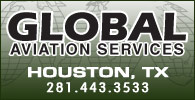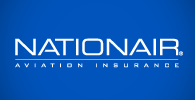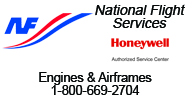DEDUCTION OF AIRCRAFT AS A BUSINESS EXPENSE

By LOUIS M. MEINERS JR.
ADVOCATE CONSULTING LEGAL GROUP

It is essential to document the direct relationship between the aircraft use and the resulting business benefit.
Aircraft owners often fear an IRS audit, concerned that the government may deem their essential business tool an unnecessary luxury. This article will examine the basic test of business-expense deductibility, as specifically applied to business aircraft.
This test is embodied in Section 162 of the Internal Revenue Code, which provides that "there shall be allowed as a deduction all ordinary and necessary business expenses incurred in carrying on any trade or business." Expenses that satisfy this test are typically fully deductible, even in cases where they exceed the undertaking's gross income, resulting in a tax loss.
"ORDINARY AND NECESSARY" EXPENSES
The "ordinary and necessary" test is often analyzed as two separate elements. Expenses must be "ordinary," based on common and accepted practices at the time and place, comparing the aircraft owner to the group of which he or she is a part. The "ordinariness" of business aircraft has been upheld in numerous contexts, courts having found that the use of private aircraft in the furtherance of a taxpayer's business to be a common practice in many industries. In addition to being "ordinary," expenses must also be "necessary," meaning that they are appropriate, helpful, and reasonable in amount, but not requiring that the business venture would be impossible without them, or that they represent the cheapest way of achieving their result.
CASES APPLYING "ORDINARY & NECESSARY" TO PRIVATE AIRCRAFT
The following are examples of cases where the courts have upheld the ordinary and necessary nature of business aircraft travel:
A traveling salesman owned and flew his own aircraft, doing business with clients over his assigned territory, using the flexibility of traveling in his own airplane to enhance the performance of his duties and increase his sales, resulting in an additional performance bonus to the salesman. Reviewing an IRS disallowance of his deductions as not "ordinary and necessary," the U.S. Tax Court overruled the IRS, holding for the taxpayer despite the fact that the evidence showed that his additional bonus income was less than the cost of the private aircraft travel. S.F. Sartor v. Comm., TC Memo 1984-274.
A government employee flew his own aircraft, using it to travel for research, development, and production projects under his supervision. He received partial reimbursement from his employer at a rate of 16 cents per mile flown (substantially less than his costs), and deducted on his personal tax return the unreimbursed balance of his business aircraft expenses. The Tax Court upheld the deduction, despite finding that the taxpayer's employment did not require him to fly his own plane. The court particularly noted the flexibility the employee's aircraft created, allowing him considerable time savings from being able to arrive and depart immediately before and after meetings, avoiding numerous overnight stays that would have been necessary flying on the airlines. D.W. Marshall v. Comm., TC Memo 1992-65.
A company board member used his own jet for company business, receiving reimbursment at commercial coach rates as established by a company policy that expected high-ranking officials to incur out-of-pocket expense in the spirit of furthering the business. The actual aircraft expenses far exceeded this reimbursement. In upholding the vice-chairman's deduction of his business aircraft travel, the court noted that enhanced scheduling convenience made the expense appropriate and helpful. Noyce v. Comm., 97 TC 670.
Having recently sold a company he founded, an individual began looking for new ventures, ultimately purchasing and operating a timber farm in Oregon. He had no experience in the timber industry, and during the years at issue the timber farm produced no revenue. The individual was a pilot, and he purchased a Learjet that he used to travel between Oregon and his home in California. Placing great emphasis on the time-savings achieved, the court concluded that the Learjet expenses associated with travel to and from Oregon were ordinary and necessary. Kurzet v. Comm., 222 F.3d 830.
Tax rules allow for rapid depreciation of aircraft, producing large deductions in the first years of ownership, skewing (at least for tax-return purposes) the financial reporting of the owner and falsely suggesting that the cost of the aircraft is far higher than it actually is. Fortunately, this tax depreciation is not taken into account in analyzing the "ordinary and necessary" question.
Congress established the accelerated depreciation timeline, creating an incentive for businesses to invest in equipment including aircraft, but not reflecting the actual economic loss to the aircraft owner. To view tax deprecation as an expense that tips the aircraft out of the "ordinary and necessary" category would mean the IRS is taking away what Congress deliberately granted. This exclusion of tax depreciation is a critical subtlety, important to any evaluation of the "ordinary and necessary" question.
A taxpayer who decides to acquire and use an aircraft in furtherance of his or her businesses should bolster the case for tax-deducting the aircraft expenses by thoroughly documenting the direct relationship between the aircraft use and the resulting business benefit. Where applicable, records should be retained illustrating the value of (1) saving time and resources through flying directly to the thousands of airports not available through commercial airlines; (2) saving time by avoiding increased airline security measures; (3) avoiding canceled or unavailable flights; and (4) making multiple stops in a single business trip. Business aviation users quickly recognize the substantial benefits of private air travel, and are well-advised to document its value in business meetings and minutes relating to the decision to opt for business aircraft.
This article is intended only as a summary, and not necessarily comprehensive, treatment of the "ordinary and necessary" test for income tax deduction. Other tax rules have not been addressed, and may impact potential structure. Always consult a qualified professional.
Advocate Consulting Legal Group, PLLC is a law firm whose practice is limited to serving the needs of aircraft owners and operators relating to issues of income tax, sales tax, federal aviation regulations, and other related organizational and operational issues.
IRS Circular 230 Disclosure: New IRS rules impose requirements concerning any written federal tax advice from attorneys. To ensure compliance with those rules, we inform you that any U.S. federal tax advice contained in this communication (including any attachments) is not intended or written to be used, and cannot be used, for the purpose of (i) avoiding penalties under federal tax laws, specifically including the Internal Revenue Code, or (ii) promoting, marketing or recommending to another party any transaction or matter addressed herein.
Discuss this article in the forums...








